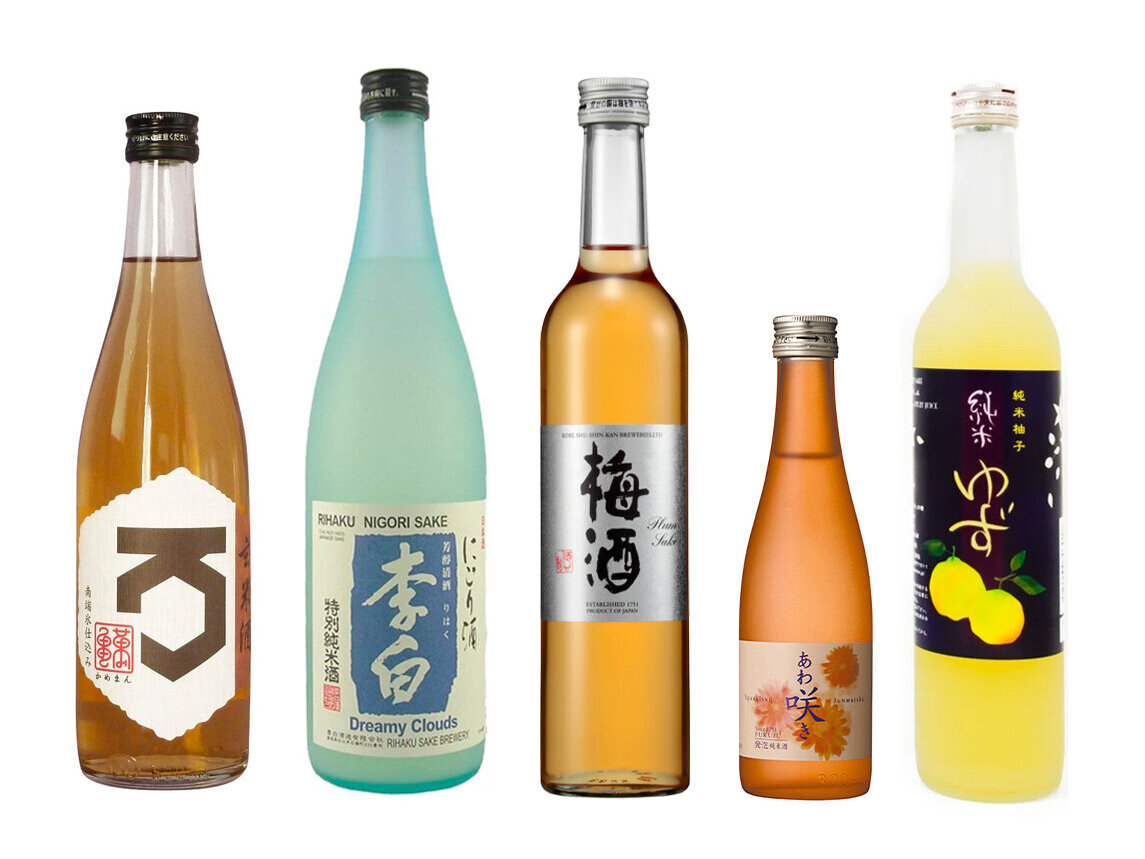Fruit liqueurs: Maboroshii set
Japanese sake laws are a bit like German beer laws: very strict on ingredients. Premium sake is effectively limited to water, rice and a tiny amount of added alcohol. (Although there is one exception, which involves using some of the rice solids left over after brewing.) As soon as any other ingredient is added, technically it can’t be called sake any more.
But you can add things to sake, and when you do it’s wonderful.
Japan has a long history of adding fruit to traditional drinks, both sake and the distilled spirit shochu. The most famous and common one is ume, which is almost but not quite a plum.
Umeshu, often rendered as “plum wine”, can be made with sake or shochu, and ranges from puckeringly tart to overwhelmingly sweet.
You’ll get the same value from seeking out smaller batch, craft umeshu as you will from moving past anonymous sake and seeing what’s really out there to enjoy.
There’s more than just umeshu as well. Adventurous brewers can, and do, put just about any of Japan’s fascinating citrus fruit into sake, with one of the most popular being the lemon-like yuzu. Think limoncello but with a dash of Asian sophistication.
But why combine sake with these intensely flavoured citrus or stone fruit? What makes sake-based fruit liqueurs different to other ones?
First of all, they’re usually not as strong. Limoncello tends to be around 30% alcohol by volume, whereas most sake-based fruit liqueurs are closer to 15%.
Using sake as the base, rather than a neutral, flavourless alcohol, also contributes umami. This gives the liqueur a richer depth of flavour, blending with the fruitiness to make the liqueur less one-note and more enjoyably complex.
Drink neat if you’re a fan of strong flavours, or liven things up with sparkling water or soda. Perfect on a hot summer day, as a party aperitif, served with tart or fruity desserts, or as a cocktail base!
Dive into sake-based umeshu with the savoury-tart flavours of Saika Plum Sake, made by a bustling modern brewery near Kobe, discover the sweet, fresh citrus notes of Yoigokochi yuzushu (just 8.5% abv), or get both and more as part of the off-the-beaten-track Maboroshi Set.

